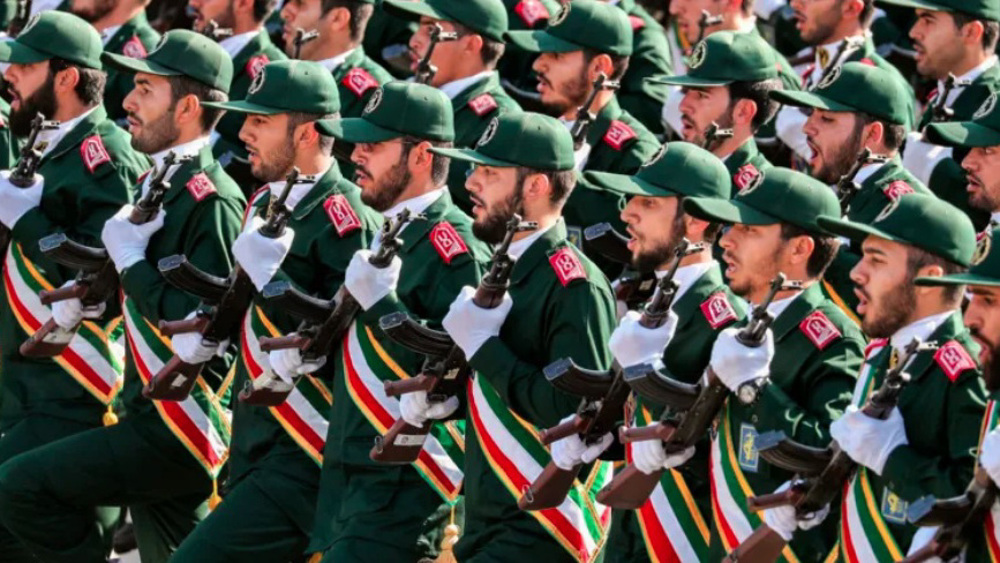Saudi Arabia causing sectarian strife: Former Bahraini lawmaker
Press TV has conducted an interview with Jalal Fairooz, a former Bahraini legislator from London, about the Saudi regime’s move to sever diplomatic ties with Iran.
The following is a rough transcription of the interview.
Press TV: What do you think about this latest measure by Saudi Arabia to cut all relations with Iran?
Fairooz: Well, it seems that the Saudis are very desperate now after lots of condemnation from all over the world based on the execution of Sheikh Nimr. And they are more desperate because Iran came very hard on them especially when the Supreme Leader Ayatollah Khamenei said that Saudi is the middle and the center of the terror in the region and it cannot live peacefully with the region.
And also because Iran has named the street on which the Saudi embassy is by the name of “Martyr Sheikh Nimr.” All these have escalated with the Saudis... just probably it is... trying to make step forward, the Saudis. And also they just want to tell the world that they are victims, I mean, they are not the assaulters.
But in their announcement, it was noticed that it have asked “other countries” to take similar measures. I believe, probably Bahrain will be next to announce probably cutting its ties with Iran and maybe the United Arab Emirates will take some measures. They will decrease their presence in Tehran probably.
But on the other side, you can see how the world has reacted, Ban Ki-moon’s statement, the Secretary General of the United Nations, was very hard and also the European Union and others.
Press TV: How do you think measures like these create division amongst Muslims in the world in general in Muslim countries?
Fairooz: Well, the times when we see Iran having an international conference for the unity of the Muslims and we can see the scholars and clerics from all sects of Islam praying together and talking about unity, we can see the Saudis agitating... the difference between the different sects. And they are coming hard on the Shias in the Eastern Province and trying to spread hatred through their media and their paid channels.
So, we could see Saudis have been trying to gain from the division between Muslims. They have been trying with the petrodollars to make some allies with some of the poor countries and call that allies of Sunnis against what they call terror, but it is actually against the democratic movement in the region.
Press TV: And how do you think these divisions amongst Muslims in Muslim countries play into the hands of those who are against Islam... enemies of Islam?
Fairooz: Well, it’s obvious that whoever is gaining from it is first of all the Zionist regime of Israel and probably you can see the hardliners in the West also gaining from this, because when they agitate the region, they can sell more arms to the region and they can see weak Islam rather than having united Islam against any atrocities plots being made against the region.
Press TV: Jalal, let’s get back to Saudi Arabia’s comments regarding Iran. It’s actually leveled a few allegations here, it said that “Iran supports terrorism. Iran intervenes in the internal affairs of countries.” And also it talks about creating Shia-Sunni strife. What is your take on these allegations?
Fairooz: Well, you see, today we had lots of calls and statements issued by Sunni clerics and centers, including some of the centers in the West actually, talking about how the Saudis are trying to agitate hatred and discrimination between the Muslims and division really. And they have said how the Saudis are agitating the region.
Also you can see how the world is seeing the situation. Today in The Independent, for example, press here in London, they have said how the new king of Saudi and the leadership of Saudi are playing sectarianism to try and gain some leadership in some part of the Islamic world against others.
They could see how the ISIS and the terrorists are attacking for example Shias and their main target is so-called Shias, but it is the Saudis actually... the source of their strength comes from the Saudis, that’s what the world researchers have shown. Most of the money pours from the Persian Gulf states and mainly from Saudi Arabia. And that is what is causing sectarianism and bloodshed actually in the region.
Trump's top general warns of Iran aggression risks: reports
VIDEO | US ambassador’s remarks on Israel’s expansion spark outrage
VIDEO | ‘Protect the Right to Protest’ rally held outside London court
VIDEO | Gaza bakery supports displaced families ahead of Ramadan Iftar
France blocks US ambassador from ministerial meetings after summons no-show
Around 20 nations condemn Israeli push toward West Bank annexation
Iran pursuing broader cooperation with African nations: Pezeshkian
Israeli minister threatens to seize entire Gaza if Hamas refuses to disarm













 This makes it easy to access the Press TV website
This makes it easy to access the Press TV website